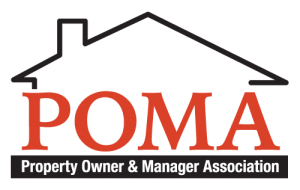City, Landlords hope registry will ease tension
Courier Press 4/10/2011
EVANSVILLE — Monty Fetter wants everyone to know that the landlord business is no easy sell.
Over the years, profit margins have dwindled. And cities such as Evansville have stepped up code enforcement.
Shrinking returns and tougher city standards have many landlords walking a fine line, Fetter said.
"It came to the point where some of us had to choose between running business efficiently and abiding by the law," said Fetter, who owns 140 rental properties and manages up to 400 others. "That was not a happy place to be — none of us want to be like that."
But an addition to the city's property maintenance code creating a rental registry will ease tension between landlords and municipal enforcers. The registry was approved last week by all City Council members except Connie Robinson, who was not present at the meeting.
"We call it the city-landlord partnership," Fetter said. "We're developing a level of trust we've never had before."
Evansville-Vanderburgh County Building Commissioner Ben Miller said the registry will develop connections between the code enforcement arm of the city and landlords and property managers who follow the law. It also will identify those who do not, Miller said.
"It's obviously a growing issue and it's difficult for us to wrap our hands around it," Miller said. "We're trying to be more organized as far as knowing where all the rental units are."
There are a few types of properties on the registry. Landlords who voluntarily enter each of their properties will assure the city of their compliance and that there is no active case against them.
Those on the voluntary list will pay $10 per unit. If a tenant or neighbor files a claim with the city against a property, its landlord will be informally contacted.
"That's a lot better than just getting a notice in the mail about a hearing," Miller said.
Also, landlords will receive a license to do limited repairs on their properties that normally require a permit.
"Maybe they have a tenant with trash in their yard and the landlord has 200 properties and we may not have time to get to it quickly," he said. "This opens up the communication and lets us communicate with them more directly."
Miller added his office also will work with landlords who have a desire to bring their properties into compliance.
But those landlords who opt out of the registry will face tougher standards. Rather than paying $10 per unit, they will pay $100, he said.
Evidence of the need for the registry can be found in what the city's nine code enforcement officers see every day, said Ron Beane, Evansville Neighborhood Inspection Services coordinator.
Since 2004, Mayor Jonathan Weinzapfel has increased the number of code enforcement officers in an effort to rid neighborhoods of blight. Areas such as the roughly eight neighborhoods within the Front Door Pride program boundaries were of particular interest, Beane said.
But with the blighted property blitz came the frustration of tracking down landlords when an infraction was found.
"You've got some of these properties that are owned by banks, and let's say one of them is out in California," Beane said. "You're telling them they have 10 days to fix something, but that letter may take four days to get there.
"And even when it does, you have no idea how long it will take them to respond."
Code enforcement officers receive 10,000 complaints each year, including reports of weeds and trash. Beane said of those relating to rental properties, many come from tenants. But enforcement officers are well aware some may try to fabricate a claim to get out of a lease.
"We keep reminding them we aren't there to settle disputes between tenants and landlords," he said. "But if there are safety concerns we'll come out and take a look."
Beane said the success of the program would heighten the quality of homes offered in the city.
A 2009 federal census count estimated there are 20,000 rental properties in Vanderburgh County. Fetter said when he started his business in 1986, there were far more landlords, but many left the business when profit margins dwindled and a litany of laws was established across the country to fight slumlords. A stone-cold relationship resulted from only receiving formal letters or court dates from local government, Fetter said.
"At that point the best I could hear from the city was silence," Fetter said. "If I didn't hear anything from them that meant nothing was wrong."
After years of brainstorming, Fetter said he and other property managers started the Property Owners & Managers Association of Evansville. That group met with Weinzapfel and plans for the addition to the code enforcement ordinance were set in motion.
"We should be working on this and not apart," Fetter said. "This will develop a trust we never had before."


